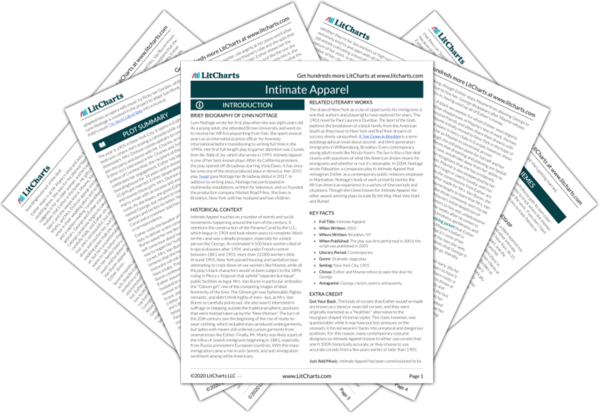That Esther asks Mrs. Dickson to read the letter to her is the first clue that Esther is illiterate. This wouldn't have been surprising at the time; while literacy rates for the whole of the U.S. were relatively low, almost 50% of African Americans at this time were illiterate. This offers one more way in which Esther, as a black woman, faced a much harder time getting ahead. In Panama, George offers more examples of how black people worldwide suffered. He's putting himself in grave danger for an "important" white man's dream.


